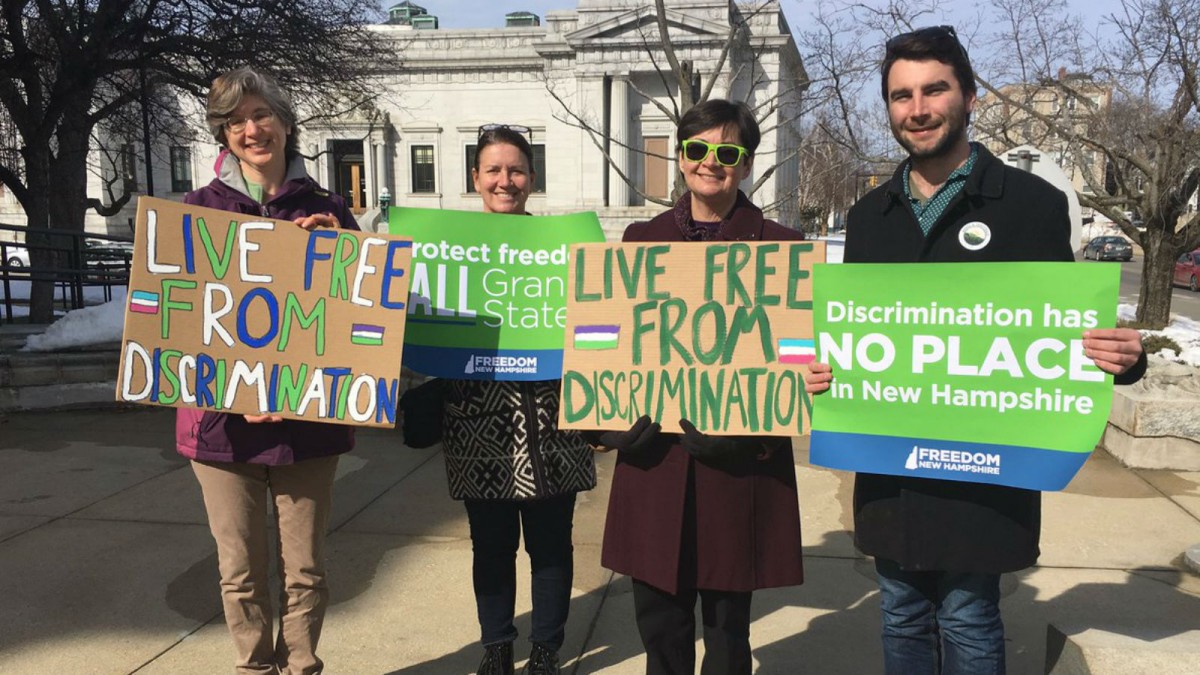
New Hampshire is embarking on a new, important exploration of the way we govern in the United States. You’re probably familiar with the concept of states' rights. It can be a tricky subject, but now the question is emerging whether communities themselves should be viewed as having distinct rights of their own.
Such protective rights would guarantee communities the right to clean air and water and the ability to push back against measures like oil and gas pipelines. It would, essentially, place people's personal right to health, safety and self-determination over the rights of corporations or the federal government to decide what is healthy for them.
Why Community Rights Matter
Last month, March 2018, marked the first time that any U.S. state legislature officially voted on the issue of community rights. The Mar. 15 vote on the NH Community Rights Amendment, or CACR19, did not pass. However, it received historic support from about one-third of New Hampshire's House of Representatives.
Motivation to draft the bill came from the increasing pressure people felt from corporations that had staked claims over plots of land with no consideration from local governments. Currently, the power to make laws against this sort of corporate behavior lies at the state level. But the speed at which corporations are able to move – laying down powerlines, drilling oil wells and the like – is part of what makes it difficult for communities to protest the "proper" way, that is, by calling on the state.
Michelle Sanborn, a state organizer with the Community Environmental Legal Defense Fund (CELDF), which helped the New Hampshire Community Rights Network draft the law, said, “The rapidity is part of what makes community protest difficult, but the underlying issue the amendment addresses is the way the system is structured to deny the right of individuals to collectively make governing decisions that afford greater protections for people and ecosystems than allowed by the state.”
We’ve seen examples of this in places like Flint, Michigan, where a formal recognition of people's right to clean water could have brought about a much faster resolution to a situation that poisoned residents for years. Or in the case of the Dakota Access Pipeline, a community rights bill might have stopped the federal government from forcing the project through over massive opposition from the Standing Rock Sioux tribe and their nationwide supporters.
Persistent Pressure
Though the New Hampshire community rights measure failed to pass, Sanborn said it's important to remember that dramatic changes to the way we govern aren't often achieved on the first try. CELDF has focused its efforts on establishing community rights legislation dating back more than 20 years – introducing a boundary between “corporate rights,” “rights of nature” and “community rights”. Notably, the organization has helped communities fighting against corporate abuse in red and blue states alike, reflecting the non-partisan nature of the effort.
“It is disappointing that the resulting vote of the New Hampshire House denied moving the NH Community Rights Amendment towards a people’s vote. However, it’s encouraging that the amendment received strong advocacy from Rep. Ellen Read and her colleagues, and that one-third of the House supported elevating the right of New Hampshire people to use their local governing process to pass local laws," Sanborn told Occupy.com.
“As corporate threats grow in the Granite State, more communities are inspired to join the NH Community Rights Movement. They are doing so by partnering with [us] to assist them in drafting local rights-based laws that protect the health, safety and welfare of their human and natural communities as a matter of right.”
A Question of Constitutionality
But standing in the way of CELDF and community rights legislation is the U.S. Constitution. Specifically, what is known as “Dillon’s Rule.”
People familiar with the current multiple efforts to introduce a ballot measure creating a new state in northern California might be familiar with the rule. It establishes that counties are the creation of the state and that the state can create, abolish, modify or essentially do whatever it wants with the counties. Basically, under Dillon’s Rule, there are no fundamental rights for a county or its representation.
As long as Dillon's Rule is held as valid law, counties are not entities with rights – an idea that entirely opposes the idea of community rights, which is why CELDF is trying to overturn it through efforts in multiple states from Pennsylvania to New Hampshire to California.
Regardless of the rule's fate, there is growing hope for the community rights movement. Laws can change – and modern cities function quite differently from how they did 200 years ago, when Dillon’s Rule was first put forth. Urban centers now cover areas that would constitute whole counties in the 1800s, and we've come to understand the importance of protecting our natural resources much better in the ensuing decades.
While CACR19 may not have passed this time around, in the words of New Hampshire House Representative Ellen Read: “CACR19 will be back.”













